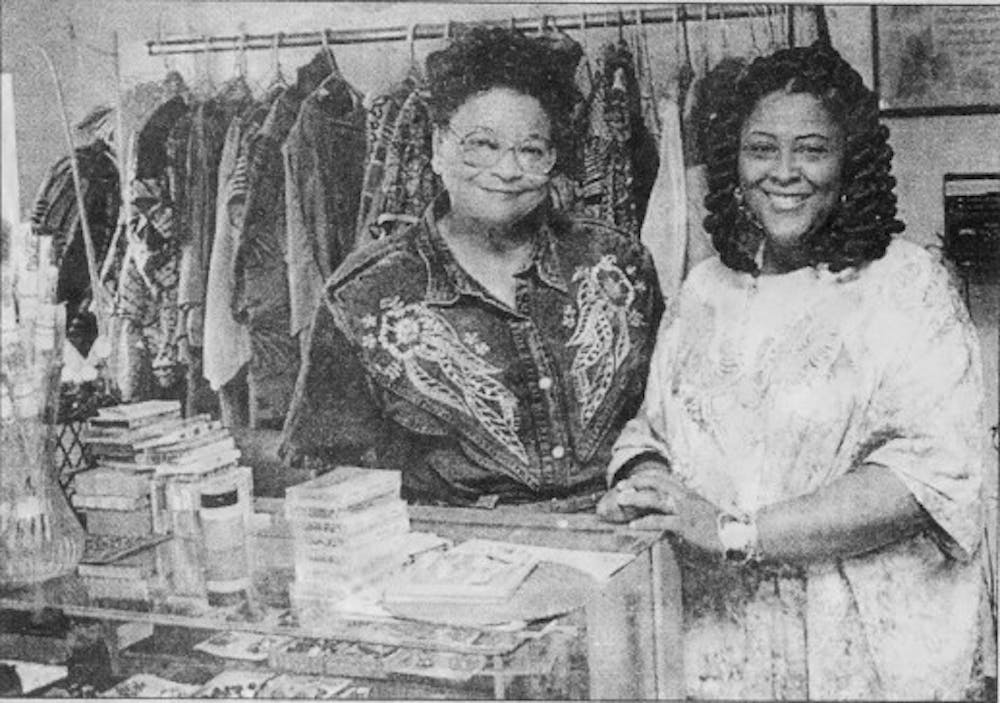“My charge is specific to UNC because my family and families like mine — with their literal blood, sweat and tears — have contributed to the $6.6 billion endowment that UNC enjoys today,” she wrote.
Mason-Hogans' proposed educational enrichment program would run from pre-k to 12th grade for the descendants of the enslaved people who built UNC. Once the program has been completed, the University would then fully fund a participant’s college education. If Mason-Hogans’ proposal is accepted by the Commission on History, Race and a Way Forward, it will then be presented to the UNC Board of Trustees.
This is not the first time Mason-Hogans has presented this proposal to the community. In fall 2019, Anna Richards, president of the Chapel Hill-Carrboro chapter of the NAACP, sponsored Mason-Hogans’ proposal at the Big Bold Ideas Community Convention.
According to a press release by The Chamber For a Greater Chapel Hill-Carrboro, the convention consisted of 175 delegates whose goal was to find three “big bold priorities for collective action in the years ahead” out of more than 500 submissions.
Mason-Hogans said her proposal to close the achievement gap by funding an enrichment program won with 88 votes.
“That really gave me confidence that the people of Chapel Hill, the educators of Chapel Hill, are ready for this,” Mason-Hogans said.
However, when the winners were revealed by the Big Bold Ideas Steering Committee, she said the wording of her proposal had changed from focusing specifically on descendants of enslaved people to focusing on all students in the school district.
“The people were ready and willing,” she wrote in her call to action. “But the power structure was not.”
Stanford’s Center for Education and Policy Analysis has found that Chapel Hill-Carrboro City Schools has the second-largest achievement gap between white and black students in the country. The district also has the fifth-largest achievement gap between white and Hispanic students.
The Racial Equity Report Card, produced by the Youth Justice Project, added that in Chapel Hill-Carrboro City Schools for the 2014-15 school year, 30.6 percent of Black students in grades 3-8 and 35.7 percent of Black high school students were “College and Career Ready” on end-of-course exams, as compared to 84.4 percent and 89.7 percent of white students, respectively.
The opportunity gap or achievement gap in education shows a “measurable relationship between race and a slew of other social factors that limit educational opportunity,” according to the Public School Forum of NC’s Committee on Racial Equity.
The committee said even when controlling for economic disadvantage, exceptional children’s status and limited English proficiency, the majority of students of color in North Carolina underperform compared to their white counterparts.
To get the day's news and headlines in your inbox each morning, sign up for our email newsletters.
Otto White Jr., a UNC graduate and one of the first Black undergraduate students at the University, said he is a member of the advisory committee that helped Mason-Hogans develop her proposal.
“I think at this point in time, we have to challenge all institutions to do better in terms of race relations,” White said. “This program should be a starter, not a final goal for the University in focusing on how we can better improve racial issues in the community.”
In April 2019, Mason-Hogans presented “Why the Way We Tell Stories and Document History is a Social Justice Issue” at TEDxChapelHillLive. In her opening, she described an anecdote about her great-grandmother helping Union soldiers during the Civil War.
“She made me understand that my people were not just some invisible observers, watching on the sideline as history took place,” Mason-Hogans said. “No. We had history too.”
She told The Daily Tar Heel that people in power will always be the heroes of the story because they get to tell the narrative.
“I want my descendants to know that we knew the truth,” she said. “We knew what this University owed us, we knew what the University had done, and the commission is something that will be recorded, this work will be recorded.”
university@dailytarheel.com
Emma GeisEmma Geis is the 2023-24 copy chief at The Daily Tar Heel. She has previously served as a copy board member and summer copy chief. Emma is a fifth-year pursuing a double major in journalism and media and African, African American and Diaspora Studies.



